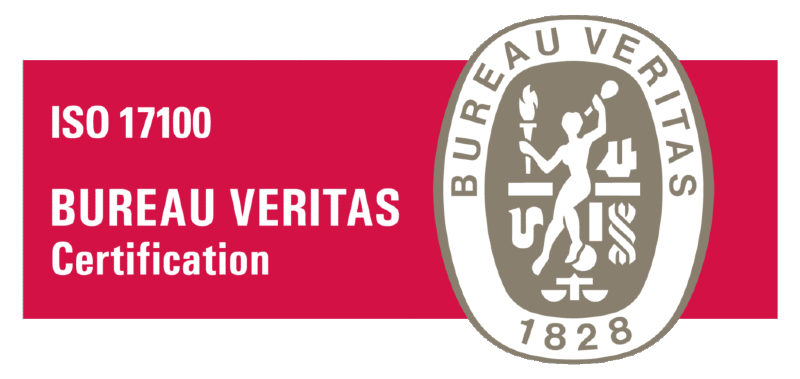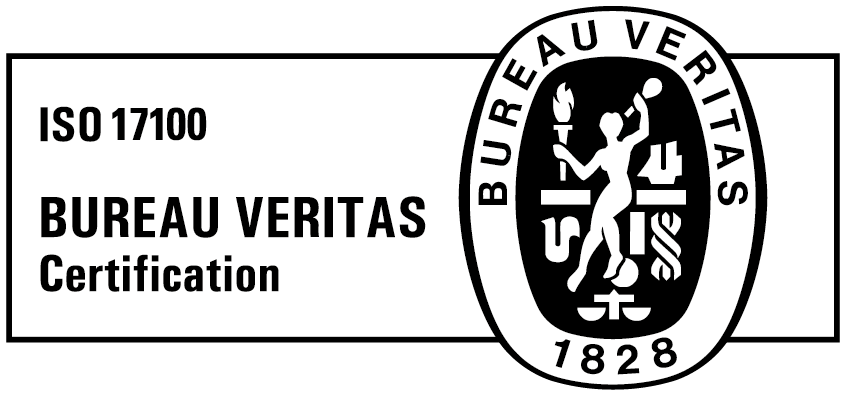Website localization that’s easy to manage and built to scale
The web doesn’t just connect machines, it connects people. – Tim Berners-Lee
Speak your customers’ language, drive more conversions, and rank higher in search engines with Taia’s AI-assisted professional website localization services.


All-in-one website localization platform
No outsourcing headaches.
We handle it all.

Guaranteed quality and accuracy
AI-assisted, human-perfected translations with a fast turnaround.

Improve your SEO rankings
Get found in every market with a localized SEO strategy.

WordPress website localization services
Get multilingual support and full service of exporting and rolling text.
AI-driven efficiency, human-grade quality

Worried website localization services are going to cost you too much time and money? Our AI-powered website localization platform is designed to cut costs without cutting corners.
We’ve made it our mission to transform your content for global impact. With a network of 2,000+ professional linguists covering 100+ languages, each with first-hand industry experience, we’ll make sure your brand sounds right in every market.
Taia uses a hybrid translation approach, combining AI efficiency with human expertise. This means you get a localized website 4x faster than with traditional website localization services – without compromising quality.
Don't just translate - localize
Taia’s website localization services do more than translate – they make your site feel native to every audience. We adapt tone, style, and cultural nuances so you can build trust and connection with your markets. When your content speaks your customer’s language naturally, they stay, trust, and buy.
Website translation services
- Swaps words, but not emotion.
- Direct and literal - fast but lacks nuance.
- Can sound robotic - bad for engagement.
- Often leads to awkward phrasing.
- Standardized plugins - limited flexibility.
VS.
Website localization services
- Adapts words + intent for real relevance.
- Refines tone, style, and phrasing.
- Sounds like it was written for the reader.
- Avoids awkward phrasing.
- Automation tailored to your needs.

We are using Taia for all our translations from German into English and French since 2019 and have been positively surprised from the beginning. Our texts are used for product explanation, advertisement and official contracts with clients.
Taia has always delivered in a fast pace, with the highest quality, to an incredibly fair pricing.





Website localization services trusted by brands world-wide
How it works: go global in 10 steps
Not sure where to start with website localization services? It might seem overwhelming, but we make it as simple and stress-free as possible. From your first call with us to a fully localized website, we guide you every step of the way – so you get the best return on your investment, without the guesswork.


Step 1: Define your global strategy
Where do you want to grow? We help you pinpoint the best languages, regions, and SEO strategy so your audience can actually find you. We also advise you on cultural expectations as well as local laws (GDPR, Bill 96 for Québec, etc.)
We help you plan ahead – so you avoid costly mistakes and launch with confidence.
Step 2: Choose the right translation quality
Not everything needs the same level of translation. Some pages – like checkout flows, product descriptions, and key landing pages – are critical for conversions and need expert human translation. Bulk and non-critical content like FAQs or blog posts can be AI-assisted for efficiency.
We help you prioritize content and match it with the right translation method, so you get top quality where it matters and cost-efficiency where possible.


Step 3: Get your website localization-ready
Is your website built for multiple languages? Will you use subdomains (fr.yoursite.com) or subdirectories (/fr/)? Do you have a functional language switcher? Can your CMS (WordPress, Shopify, or custom) handle multilingual content? Does your website localization platform support automated updates for new content?
We take care of the setup to avoid technical roadblocks.
Step 4: Extract and organize your content
There’s more to translate than just visible text. We extract everything – on-page content, metadata, UI elements, and even hidden text inside images or code – while keeping your original formatting intact. With support for 70+ file formats, nothing gets left behind.
Your entire website is prepared for translation, without breaking structure or design.


Step 5: AI pre-translation & technical testing
Catch problems before they happen. Before human translation begins, we run a pre-translation in our AI-powered localization and translation software tool. We check for layout shifts, missing elements, and potential technical issues to avoid expensive fixes later and make sure your website is translation-ready.
This early step prevents expensive fixes later and makes sure your website is translation-ready.
Step 6: Human translation & localization
This is where your content comes to life. Our expert linguists translate, adapt, and refine your content so it reads naturally in every language. From brand tone and cultural nuances to localized SEO keywords, we make sure your message lands just right with your audience.
Your brand won’t just be understood – it will feel native to every market.


Step 7: Testing & quality assurance
We don’t just assume everything works. Our team reviews page layouts, UI elements, navigation, URLs, SEO setup, etc. to make sure your localized website functions flawlessly. No broken text, no awkward spacing – just a polished, professional multilingual experience.
Your website will be 100% ready before launch.
Step 8: Launch your multilingual website
It’s time to go live. Once everything is approved, we deploy your translated content, activate language-switching, and ensure search engines start indexing your new pages.
Your localized website is now ready to engage international customers.


Step 9: Monitor, optimize & automate
Localization doesn’t stop at launch. We track SEO rankings, conversion rates, and user engagement to fine-tune performance. With AI-powered translation memory and glossary, we also automate future updates – so your new blog posts, product pages, and content refreshes stay multilingual without extra effort.
Your website stays up-to-date and globally optimized—without adding to your workload.
Who we work with

E-commerce & retail – Multilingual product pages, localized checkout experiences, and international SEO that drives real traffic.
Business legal & compliance – Contracts, privacy policies, and regulatory documentation – error-free and airtight.
Tech & SaaS – Localized UI, software, and customer portals that feel like they were built for each market.
Startups & SMBs – Cost-effective localization solutions that grow with your business.
Healthcare & medical – Clear, compliant translations for patients, providers, and research content.
Finance & banking – Secure, industry-compliant website localization for financial institutions.
Consistent website localization services with API integration
Got a website that constantly updates? Need translations done fast and at scale?
With our powerful API integration, your website connects directly to our website localization platform, automating translations in real-time. No more manual uploads, no more back-and-forth – just smooth, continuous updates as you expand into new markets.
Send new content continually, and get back translations in your system.
Handle large volumes of website updates without lifting a finger.
Shopify, Magento, and custom CMS? We integrate with them all.
Website localization services for WordPress
Running a WordPress site? Expanding to new markets shouldn’t mean struggling with clunky plugins and manual text exports. That’s where Taia’s website translation and localization services for WordPress come in.
Full-service content export & reintegration
Multilingual SEO support
Technical guidance and on-page optimizations for smooth performance in every target language
Still not sure if you should opt for website localization services?

Is website localization worth the effort? Easy answer: if your customers can’t understand you, they won’t buy from you. It’s that simple.
Studies have shown that:
76% of online shoppers prefer buying in their native language.
Only 25.9% of internet users speak English, while Spanish, French, German, and Chinese have pushed into the top 10 languages online
And the biggest brands know it. Over 3/4 of Fortune 500 companies invest in website localization services because they’ve seen firsthand how it fuels growth.
Not sure where to start? See how our website localization services can drive growth for your business today.
Taia is ISO 17100:2015 Certified
We are very proud of our ISO 17100: 2015 Standardized Translation Certification, which we obtained in 2020.
ISO 17100 defines the roles of the translator, their technical resources and the quality of service. It also outlines the best practices for translation companies in order for them to ensure communication between clients and the translator for all completed tasks.

Certification Requirements
Translator Competency
All Taia translators demonstrate the five specific competences outlined by the ISO: translation competence, linguistic and textual competence in source and target languages, competence in research and processing, cultural competences, technical competences, and domain competence.
Translator Qualifications
All Taia translators have a certificate of competence and five years of documented professional experience. Similarly, all translators and revisers have sufficient knowledge in the field of the texts they translate.
Minimum Standards
All translations are subject to revision by a reviser.
Communication between the client and Taia
We put emphasis on effective communication with you to ensure that the translation meets quality standards. This means that we work with you to understand the relevant requirements, including the quality of the target text, and it’s characteristics. We come to an agreement with you on the style of the translation that is required before the translation begins.
Feedback Process
Taia uses a client feedback process to better understand how satisfied you were with the work we have done because our goal is to always keep improving!
Data Protection
Frequently asked questions
What is website translation?
Website translation is the process of converting your website’s content from one language to another so it’s accessible to a global audience. But translation alone won’t make your website feel local to users. That’s where website localization services come in, adapting your site so it feels like it was built for every market.
How does website translation differ from website localization?
Translation changes words – localization changes the experience. A translated site may still sound awkward or miss cultural nuances. Website localization services tweak tone, layout, and messaging so your site feels native, persuasive, and conversion-ready in every market.
What are the benefits of translating my website?
- More traffic – Reach a global audience and rank higher in local searches.
- More sales – 76% of shoppers prefer buying products in their language.
- More trust – Customers feel confident when content sounds native.
- Higher engagement – Localized websites keep visitors on-site longer.
- SEO advantage – Optimized translations boost your search rankings.
Still not sure? Talk to us before you make a decision >>
How long does it take to translate a website?
It depends! A small site? A few days. A large e-commerce store? A few weeks. Need it fast? Our AI-powered website localization platform speeds things up without cutting quality.
How much does website translation cost?
Pricing depends on word count, languages, and level of localization quality, but one thing’s for sure: bad translations cost more in lost sales. Book a demo with Taia to see how our cost-effective website localization services fit your budget.
What languages should I translate my website into?
Our rule of thumb is: look at your data. Where do you get traffic from? In which markets is your line of product in demand? What are the easiest markets to enter in the context of your delivery or other costs?
Also, bigger languages are a safer bet than smaller ones.
- Expanding into Europe? Try French, German, Spanish.
- Targeting Asia? Think Chinese, Japanese, Korean.
- Going global? We support 100+ languages – let’s find the best fit for you. Contact us today >>
Can you handle website translation for e-commerce platforms?
100%! We specialize in multilingual website translation services for e-commerce. From product descriptions to checkout pages, we make sure your online store speaks the language of your buyers whether you’re on Shopify, Magento, WooCommerce, or another platform.
How do you handle website updates and ongoing maintenance?
Your site’s always evolving, and your translations should too. With our website localization platform and API integration, new content gets localized automatically. Our project managers are always there for you to make sure there are no bottlenecks.
Can you work directly with our web development team?
Absolutely! Our website localization services integrate with your CMS and work with your developers to make sure localization runs smoothly whether you’re using WordPress, Shopify, or a custom-built site. Book a demo now >>
How do you ensure the accuracy and cultural appropriateness of translations?
Our website localization process runs in 3 phases:
- Our AI-powered translation tool provides speed and consistency.
- Expert native linguists make content sound natural and train the AI further.
- Cultural specialists refine tone, idioms, and market-specific details.
How is SEO handled in website translation?
SEO translation is an important part of Taia’s website localization services. We optimize keywords, metadata, and search terms so your site ranks on searches. Our SEO-optimized website translation services make sure you get found everywhere.
How do I update my website after it has been translated?
Simple. With our website localization services, updates happen in real-time via API integration, or we can manually update new content. Let’s talk about it today >>
